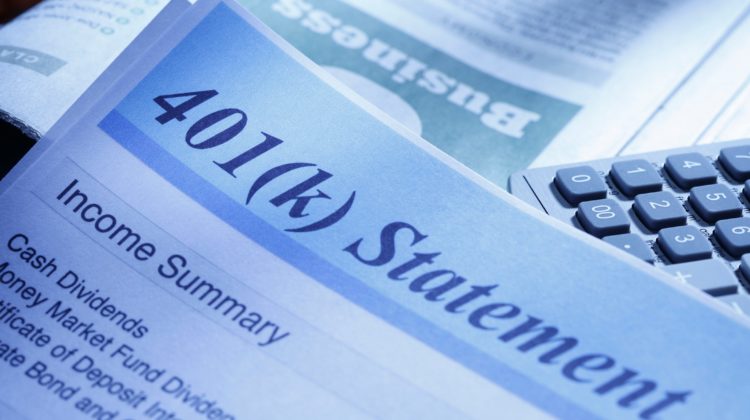
A 401(k) is a savings and investment account that you may have access to at work. But putting money into it means that you take home less each month. Which may have you asking, it really worth it?
A 401(k) has many advantages that could catapult you into retirement success. Here’s how.
Image source: Getty Images.
How your money can grow
In 2021, you can contribute $19,500 to your 401(k). That number has grown from $1,500 since the creation of this savings vehicle in 1978. That number will continue increasing in the future, and those who are 50 or older get an extra catch-up contribution that’s currently $6,500. But even if you assume you contribute just the $19,500 amount annually, here’s how your money could grow at different rates and different time spans if you contributed this maximum amount.
| Rate of Return | Asset Allocation | 20 years | 25 years | 30 years |
|---|---|---|---|---|
| 8% | 40% stocks/60% bonds | $963,747 | $1,539,611 | $2,385,744 |
| 9% | 60% stocks/40% bonds | $1,087,408 | $1,800,318 | $2,897,217 |
| 10% | 100% stocks | $1,228,549 | $2,109,544 | $3,528,397 |
Calculations by author via CalcXML.
But you could become a millionaire with smaller amounts, too. Especially if you start earlier or delay retirement so that your accounts could grow longer. The table below shows how much you would need to invest annually in a 100% stock portfolio for your accounts to grow to $1 million in 30 years if invested at different rates.
| Rate of Return | 30 Years |
|---|---|
| 8% | $8,200 |
| 9% | $6,800 |
| 10% | $5,600 |
Calculations by author.
The benefit of tax-deferred savings
One of the biggest advantages of using your 401(k) is that you can save on taxes. The money you add to your 401(k) comes out of your paycheck before you pay taxes. And the amount of money you owe on this income is deferred until you take it out in the future.
If you are like most retirees, you will make less money in retirement and hopefully, this will land you in a lower tax bracket which means you will pay less in taxes overall. For instance, if you save $5,000 in a 401(k) and are in a 30% tax bracket now but pay 20% in taxes when you retire, you’ll save $500.
Free money for the win
Another way you can get more bang for your buck with your 401(k) is if your company has a match program. With this type of incentive, your employer will put money into your 401(k) if you do as well. So if your company has a 4% match and you make $100,000, you can receive up to $4,000 each year in additional contributions. The table below shows the impact of this with different rates of return over 30 years.
| Rate of Return | $4,000 annually (without match) | $8,000 annually (with match) |
|---|---|---|
| 8% | $489,383 | $978,767 |
| 9% | $594,301 | $1,188,602 |
| 10% | $723,774 | $1,447,547 |
Calculations by author via CalcXML.
Are there any catches?
A 401(k) provides benefits that a traditional savings or investing account doesn’t, but you can’t access money put into these accounts as easily. You will owe taxes on any distributions you make and if you’re under 59 1/2, you will also pay a 10% penalty. You can see below how this might work:
- You need a $10,000 distribution.
- Your tax rate is 20%.
- You are under 59 1/2 so you owe an extra 10%.
- The total amount you’ll need to distribute is $14,000.
- If you are over the age of 59 1/2 and don’t owe the penalty, this amount would be $12,500.
Ideally, you will be in a lower tax bracket when you retire than when you are working, but this isn’t always the case. And if you end up in a higher tax bracket, you could end up paying more taxes at distribution than if you paid them while you were employed.
Money your company gives you in the form of a match is not technically yours right away and is usually subject to a vesting schedule. This means that a percentage of it becomes yours over a predetermined time period. So if you have a four-year vesting period, 25% becomes yours free and clear every year. If you leave your company before it vests, you don’t keep it.
Money invested into your 401(k) is subject to the same risk as any other investments. And in a year like 2008, a 401(k) with a balance of $500,000 invested in 100% large-cap stocks would have been reduced to $315,000. That is why you should always consider your risk tolerances and make sure that the mix of stocks and bonds that you own is one that you feel comfortable with.
Your 401(k) is one of the investment vehicles at your disposal that could help you meet your retirement goals. Learning what the benefits of this type of account are and how you can use them could help you become a millionaire with a lot less of your own money.
